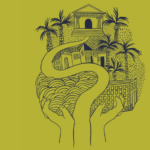
Highlights and Lowlights from 2023 in Book Banning News: Book Censorship News, December 22, 2023
‘Tis the season of reflection. Last year at this time, instead of looking back at 2022 in the rearview and teasing out some of the big stories or themes, I put together a guide to setting anti-censorship resolutions. Given what we know about how the landscape has changed over the last 12 months, it’s important to both sit down and draft your goals for the coming year and to do so with an eye toward what happened this year. Let’s take a look back.
Lawsuits
The first lawsuit over book bans hit Escambia County, Florida, schools in May of 2023. Since then, several others have been filed across the country. The Escambia lawsuits will be heard in 2024 and will play a significant role in the future of book bans.
Legislature
Illinois became the first state to ban book bans. The language around this bill is a little lofty, as the bill does not ban book bans but incentivizes libraries to include the Library Bill of Rights or similar intellectual freedom statements in their policies. Still, it set a powerful standard, and several other states have put forward anti-censorship bills.
At the same time, several other states have introduced bills that would make book bans easier — including in several of the states where anti-censorship bills are being considered (among them are Wisconsin, New York, and Pennsylvania).
Two bills aiming to amplify anti-book ban work have landed in U.S. Congress this year as well and will be under consideration in the new year: the Books Save Lives Act and the Fight Book Bans Act.
The House of Representatives will take up another anti-censorship bill in 2024, the Prison Libraries Act. U.S. Representatives Emanuel Cleaver, II (D-MO), Sheila Jackson Lee (D-TX), and Shontel Brown (D-OH) have introduced a bill that would expand prison libraries and open up opportunities for those experiencing incarceration to better themselves. This bill would authorize $60,000,000 over six years for state prisons to provide library resources and services — indeed, this isn’t just about dropping tons of books into the prisons and moving on. Trained professionals would be there to help people use the educational and entertainment resources. The Act would also help build powerful coalitions between prisons and the local libraries in their community.
Federal Hearings
Two different federal subcommittees heard from stakeholders across the country on the status of book bans in the U.S. A Committee on Education and the Workforce’s Subcommittee on Early Childhood, Elementary, and Secondary Education Hearing in October of this year that included panelists representing a majority of pro-book banning members.A September 2023 U.S. Senate Committee on the Judiciary hearing that included a performance by Senator John Kennedy giving a dramatic reading of Gender Queer that became an (unbearable) meme and talking point.
Anti-Censorship Wins at the Polls
There was a lot of celebration in November when the bulk of the candidates Moms For Liberty endorsed in local school board elections were not elected. This isn’t the interesting story — just the most headline-worthy and one which has inaccurately described the outcome as the end of censorship (the fact a founder but former active member of the group has been caught in a sex scandal isn’t it, either, despite the headlines).
The real story is how many people showed up to the polls to ensure that school boards were stacked with people who actually care about the educational needs of the students and who want to make sure educators are able to do their jobs, too.
People also showed up for public libraries. After being defunded multiple times, the Patmos Public Library in Jamestown, Michigan, won their millage in the midterm elections, and Pella Public Library in Pella, Iowa, won a very close election that would have handed control of the library to the city.
Librarians Are Leaving the Field — Or Being Forced Out
Unfortunately, it might have been too late for many librarians, who are leaving the field amid several factors. Three of the biggest? A lack of support for their work, book bans, and the daily barrage of name-calling they encounter from small pockets of their community (and larger pockets of the internet and right-wing instigators). Read Florida librarian Tania Galiñanes’s story here and the stories of Missouri school librarians here. You’ll also want to read Elissa Myers’s story of being queer in a public library where LGBTQ+ content was targeted — and why she is no longer at that job.
Although the above departures are emblematic of a larger trend, in other cases, librarians have been forced out of their jobs for standing up for intellectual freedom. Former library director Patty Hector used her firing from the Saline County Library in Arkansas to launch a campaign for a spot on the very quorum court that allowed her to be fired in the first place. Campbell County, Wyoming, fired their director this year, too — years into the book ban fight plaguing the board and community. It was not met with cheers by those at the meeting.
More Groups Doing More Good Work
This year marked the launch of EveryLibrary’s powerful, free organizing tool, Fight for the First. It has been a resource utilized by dozens of grassroots anti-censorship groups to coordinate how to protect the freedom to read in their own communities while tapping the knowledge and resources of those doing similar work across the country.
Among some of the new groups are the Texas Freedom to Read Project and several student-led anti-censorship groups, including the work that Central York’s PARU group needed to do again to end book bans in their school.
As nice as it is to get good PR for sending books to beleaguered states — and there is a lot of media ink spilled on these efforts for “little banned book buses” and similar — these efforts do not create long-lasting change. They are not enshrining the rights of all to access materials, and many continue to promote the idea only a handful of titles are those that are banned. The reality is we need people on the ground and in meeting rooms demanding better. We need to understand that 86% of the books banned in schools in the last year were “only” banned in 1 or 2 schools. That is a lot of books, and most never get a lick of attention. Often, the authors don’t even know the books they wrote for children or teenagers are banned from them.
Groups like these do the hard work and are eager to have you join them in their efforts.
More public libraries offered digital access to banned books this year, too. Though not a solution to the bigger systemic issues — something they’d agree with! — it is a more far-reaching avenue for access.
Lies, Damned Lies, and Statistics
This list but scratches the surface. It doesn’t touch on the ways that publishers like Brave Books have perpetrated several campaigns to directly attack public libraries, either via “conservative story times” coordinated across the country or lies about school book fairs that conveniently led to them creating their own “alternate” book fairs via SkyTree.
It doesn’t touch upon the lies perpetrated by groups like Moms For Liberty lie about the provenance of BookLook/BookLooks, the lies they’ve spread via a chapter-created “playbook” for banning books that omits crucial parental rights granted to them via a public school teacher, the clever framing of a political cartoon that criticizes them to make them look like protectors of children and not victimizers of them, and Groups that aren’t Moms For Liberty — remember, they’re big not doing this alone, and they may not even be the biggest — have taken to lying by omission, too. It’s the book banner way since our laws about obscenity do not meet their agenda. The Miller Test uses “as a whole” twice in its 60-some words. It doesn’t matter, though, when the manufactured outrage can own the entire news cycle.
Also not mentioned are the ways that folks are cashing in big from book bans. Nothing says America quite like revoking foundational rights and “developing” a solution for folks to navigate them.
We haven’t touched on the wave of bomb threats to public libraries, either, nor the incredible increases in book bans in schools over the last year and the trends that show book bans beget more book bans.
And while the responses to the trio of surveys on parental perceptions of libraries run by Book Riot and the EveryLibrary Institute show that the lies being perpetrated are having an impact, these surveys showed something else: the vast majority of people trust librarians, disagree with book bans, and feel safe in libraries.
Equally important is the tension in the results of those surveys where we find opportunity. What can we do to counter those lies and combat mis-, dis-, and mal- information?
Book Censorship News: December 22, 2023
- “A total of 673 books, from classics to best-sellers, have been removed from Orange County classrooms this year for fear they violate new state rules that ban making ‘sexual conduct’ available to public school students […] The books run the gamut, from John Milton’s 17th-century epic poem Paradise Lost to John Grisham’s 1991 New York Times bestseller The Firm. John Steinbeck’s East of Eden and John Irving’s The World According to Garp made the list, too. The list also includes popular novels by Stephen King, Sue Monk Kidd and Jodi Picoult, classics like A Tree Grows in Brooklyn, Jude the Obscure, and Madame Bovary, and award-winning books like A Thousand Acres, Beloved, and Love in the Time of Cholera.” Welcome to the new Florida law being applied in a district. It’s the second to last week of the year, so this story will likely fly under the radar…which is also probably kind of hoped for. Almost 700 books.
- Meanwhile, over 1000 books are off limits to students in Escambia County, Florida, schools for review. It’s likely students won’t see these books for a long time, if ever. More on Escambia from The Washington Post.
- There’s now a portal in the state of Alabama where folks can report naughty books. I think I’ve seen this before…
- The school district in West Ada, Idaho, went ahead and quietly banned 10 books last week. Guess what review tool they used to make their decisions on this? If it’s BookLooks, then you’ve paid attention. The books were A Stolen Life by Jaycee Dugard, Collected Poems 1947-1980 by Allen Ginsberg, Empire of Storms by Sarah J. Maas, Kingdom of Ash by Sarah J. Maas, Milk and Honey by Rupi Kaur, The Handmaid’s Tale: The Graphic Novel by Margaret Atwood and adapted by Renee Nault, The Sun and Her Flowers by Rupi Kaur, Water for Elephants by Sarah Gruen, Wicked: The Life and Times of the Wicked Witch of the West by Gregory Maguire, and You: A Novel by Caroline Kepnes.
- Thanks to new made-up obscenity issues, the Grand Forks Public Library (ND) has gotten its first book challenge in years. Thought we weren’t going after public libraries?
- Not to be outdone by the school board member in Central Bucks who was sworn in on a stack of banned books, some of the new members of the Fairfax County School Board in Virginia did the same. Now to see some action from these board members.
- The Post-Gazette looked at how many times the books being challenged in local school districts, Blackhawk and Pine-Richland (PA), were being checked out. I suppose this is useful information for…something? Many students never bother checking out the books they read and more, we know for a fact that students aren’t borrowing these books because of the rise of book bans. Book bans are driving students away from reading, period.
- “Someone called the police last Friday. About a book. What happened next outraged the school community and left them in disbelief. After the complaint, Great Barrington police and the Berkshire District Attorney’s Office began investigating whether the illustrated novel, Gender Queer by Maia Kobabe, was inappropriate content for an eighth grade classroom at W.E.B. Du Bois Regional Middle School.” Massachusetts, this is you.
- Six books were removed from Hernando County Schools (FL). A school board member used the phrase “nasty nasty vulgar filthy” to describe an out-of-context passage from…The Hate U Give.
- Ottumwa Schools (IA) released the 30 book titles they’ve removed from the district per the new state bigotry law.
- “Carroll County’s Board of Education [MD] is asking community members to comment on proposed revisions to the school system’s policy on selection, evaluation and adoption of instructional materials. The revisions seek to define ‘sexually explicit content,’ in order to ensure such content is not included in school materials.” This is going to end well.
- The judge overseeing the lawsuit in Escambia County Schools (FL) will begin in January.
- Some regressive action was taken on the Texas READER Act. Catch up on what this law means for books in the state and how the government is deciding what kids can or cannot access. “We don’t coparent with the government” folks cheer this on.
- Queen of Shadows by Sarah J. Maas will remain on shelves in Brainerd High School (MN).
- Pickaway County Library Board (OH) will keep the book Making a Baby in the children’s section…so it can, you know, reach the audience it was written for.
- “Alles, who had the support of congregants from the church he attends, North Park Wesleyan, spoke about censorship and read what he considered to be some of the ‘explicit’ sections in the book he challenged, including information about dating apps and diagrams about the human body. Alles said that applying the word ‘censorship’ to his challenge to move the Dawson book to the adult section of the library was ‘intellectually dishonest.’ Teens, he pointed out, have access to the adult section.” Shocker all around. This is Cuba Library in New York, and no decision has been rendered yet on the future of This Book Is Gay.
- The latest Keller Independent School District (TX) meeting was an utter shit show, with one of the few rational school board members walking out after it was decided that chaplains could volunteer on campus. This is a PUBLIC school district.
- The impact of 2 years of book banning on school libraries. This piece is centered on Wentzville, Missouri, one of the districts that removed my book from shelves (whether it’s back on the shelf is unknown). It’s an excellent and far too common story.
- “Local pastor Paul Thompson asked the board to reconsider its decision on Gender Queer, although library policy states the results of reconsideration decisions stand for five years.” This is in Dothan, Alabama. Same story over and over. Good thing he’s got a state-sponsored snitch line now.
- Most of Pulaski County, Arkansas, students will once again be able to access online educational materials via the Central Arkansas Library System. Recall this was revoked, leaving some 11,000 students without library resource access. It was over nonsense, of course.
- It was the Bible last year. This year, the Davis School District (UT) is reviewing the appropriateness of the Quran.
- “Leavenworth School District Board of Education [KS] voted 4-3 this week to pass revisions to an education policy that bans ‘gender identity’ and ‘sexual orientation’ references in the district’s elementary library books.” In other words, the district just banned LGBTQ+ books from elementary school libraries.
- Cumberland-North Yarmouth School Board (ME) will keep Gender Queer on shelves. It’ll shock you to know that, like in other challenges to the book in the state, when the board read it, they saw how important it was.
- Lafayette Parish Public Library (LA) falls for the nonsense rhetoric around the American Library Association and canceled its membership to the organization.
- In St. Charles County Public Libraries (MO), books with “explicit photographs of sexual intercourse or sexual acts” will be removed from library shelves. Whatever that means…(you know what that means).
- Remember Quarryville Public Library (PA)? One of the townships refused to give their annual donation because of LGBTQ+ books, and Johnny Weir made a donation to make up for it? Another township the library serves is refusing to make their donation because of LGBTQ+ books. This is going to really hurt the library, including cuts to programs and possibly staff.
- Lake Luzerne’s public library now has three new board members after being closed for months because of people leaving both the library staff and the board. All of it over queer panic, y’all.
Also In This Story Stream
- Google Is Destroying Your Access to News: Book Censorship News, April 19, 2024
- What Young People Can Do About Book Bans: Book Censorship News, April 12, 2024
- Sexual Assault Awareness Month & Book Banning: Book Censorship News, April 5, 2024
- How Public Libraries Are Targeted Right Now—It’s Not “Just” Books: Book Censorship News, March 29, 2024
- The 2024 Lambda Literary Awards Shortlists Are Here
- You’re Wrong About These Common Myths About Book Ban: Book Censorship News, March 22, 2024
- State Anti-Book Ban Legislation Updates: Book Censorship News, March 15, 2024
- They’re Dismantling Higher Education, Too: Book Censorship News, March 8, 2024
- The Landmine of Common Sense Media: Book Censorship News, March 1, 2024
- What Updates Should Library Collection Policies Include?: Book Censorship News, February 23, 2024










